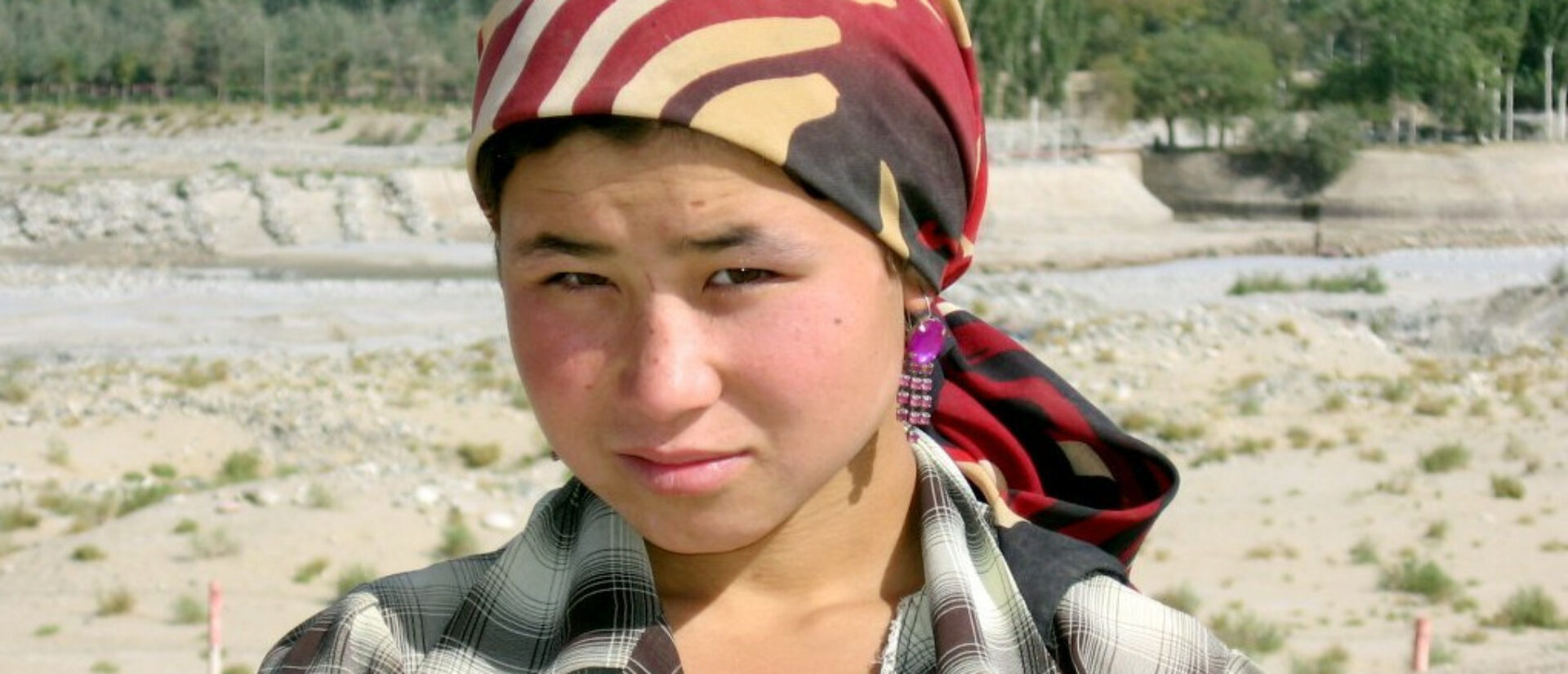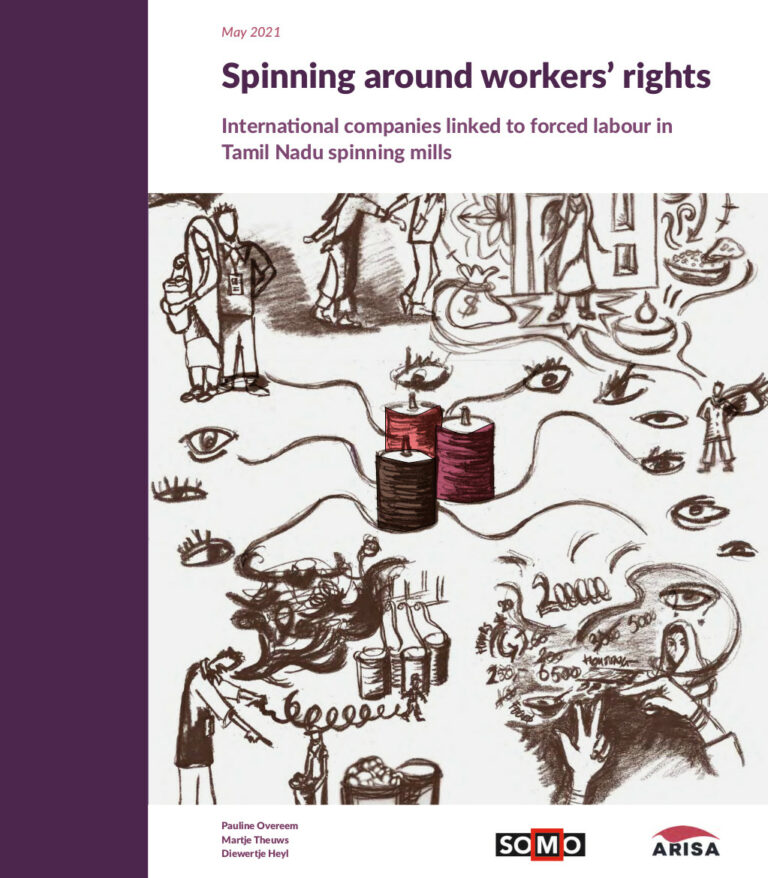
Force companies to end forced labour
Last Thursday, the German human rights organisation ECCHR(opens in new window) , with the help of Amsterdam-based law firm Prakken d’Oliveira, filed a petition with the Dutch Public Prosecutor against several clothing retailers for their involvement in forced labour in their supply chains. On the same day, December 2nd, Dutch Minister of Foreign Trade and Development de Bruijn announced(opens in new window) that the Dutch government will immediately start work on ambitious national binding due diligence legislation to hold companies liable for human rights and environmental abuses in their supply chains. SOMO welcomes both of these developments. Companies who refuse to act responsibly and prevent human rights abuse in their supply chains must be forced to do so using the law. The global garment and textiles sector has a reputation for gross exploitation and labour rights violations. After a recent Dutch court ruling against Shell, the likes of Nike and C&A are now being called to account.
ECCHR’s petition to the prosecutor invokes the Dutch criminal code and accuses several garment companies of complicity in and profiting from the exploitation and enslavement of Uighurs in Xinjiang, China, rising to the level of crimes against humanity. Hundreds of thousands of Uighurs are forced to work in cotton fields, spinning mills and garment factories in Xinjiang. It is also estimated that more than one million Uighurs are imprisoned in Chinese internment camps. The petition also accuses the companies of money laundering.
C&A, Nike, Patagonia and State of Art are mentioned by name in ECCHR’s press release, but it is clear that a much larger group of companies is implicated. China is the world’s largest producer of cotton, and one-fifth of global cotton production comes from Xinjiang. Cotton, yarn, and fabrics from Xinjiang are processed into countless other products for markets around the world. The route they take differs by company and product. Some Western clothing brands directly from Chinese companies with production sites in Xinjiang. For others, the supply chain runs through factories in India, Pakistan, and Sri Lanka that use yarns and fabrics from Xinjiang.
Unfortunately, it is very difficult to ascertain which companies contribute to this exploitative practice as customers. The garment industry is charachterised by overly-complex corporate structures, deliberately long and opaque production chains, and a high degree of secrecy about commercial interactions. Clothing retailers provide almost no transparency into the origin of the raw materials (such as cotton) and materials (yarns, fabrics) of their end products (clothing, household textiles). Companies also share insufficient information about precise production locations and working conditions.
The garment industry has many voluntary initiatives aimed at improving working conditions, but none of these has brought about a sufficient degree of transparency and real improvements for workers. For example, several of the Chinese factories implicated in the criminal complaint are on the production list of the Dutch Agreement on Sustainable Garments and Textiles(opens in new window) , but the Agreement is not transparent about which member companies buy from these Chinese producers. Initiatives such as the Ethical Trading Initiative (ETI) and amfori fail to publish any information at all about the suppliers of participating companies.
It is not just companies that knowingly conceal where and how their products are made. Current European customs legislation is also to blame for the lack of transparency, because it prioritises company confidentiality over human rights concerns. Internationally, the EU and European countries perform surprisingly poorly in this area, as other large countries and markets, such as the United States, Brazil and India providing a greater degree of transparency on trade data. A tightening up and strengthen of the European Customs Act is urgently needed. In order to overcome these obstacles to transparency, SOMO is currently seeking to gain more insight into Dutch imports of clothing and fabric from Xinjiang by means of a Freedom of Information Act (FOIA) request.
Ultimately, legislation is needed, and indeed, a slate of new legislation is currently in the pipeline in various jurisdictions. A ban on products made with forced labour, which has been openly supported by European Commission President von der Leyen and the new German coalition government, would be an excellent initial step. In addition, ambitious human rights due diligence legislation that includes strong transparency requirements and enforceability mechanisms is required at the Dutch, European, and international (UN) level. Fortunately, detailed proposals for such mandatory due diligence legislation have already been made and are being discussed at the Dutch and European parliaments, and the UN in the form of a binding instrument on business and human rights. SOMO calls on the incoming Dutch government to continue the line set out by Minister de Bruijn(opens in new window) and to introduce strong legislation in which transparency and human rights are central, at the national, European and international levels.
It is high time that clothing companies are held legally liable for failing to act on their responsibility to respect human rights throughout their supply chains, from the retail stores in European cities all the way to the cotton fields.
Do you need more information?
-

Joseph Wilde-Ramsing
Advocacy Director
Partners
Related content
-
Spinning Around Workers’ Rights Published on:
 Martje TheuwsPosted in category:Publication
Martje TheuwsPosted in category:Publication Martje Theuws
Martje Theuws
-

-
Chain of consequences Published on:
 Joshua RosenzweigPosted in category:Publication
Joshua RosenzweigPosted in category:Publication Joshua Rosenzweig
Joshua Rosenzweig

